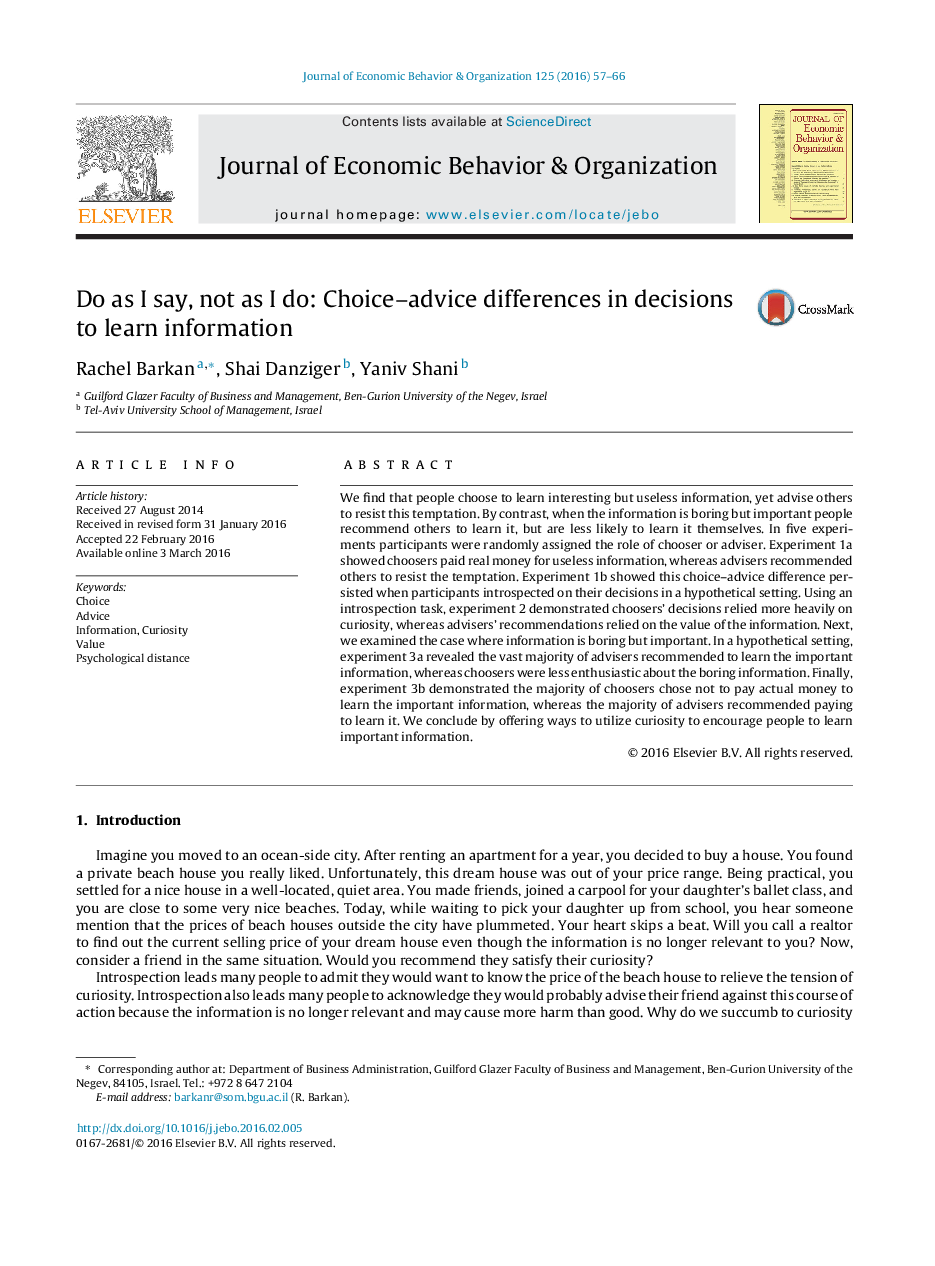| Article ID | Journal | Published Year | Pages | File Type |
|---|---|---|---|---|
| 883427 | Journal of Economic Behavior & Organization | 2016 | 10 Pages |
•People yield to curiosity but advise others to resist the same temptation.•People pass over important (boring) information but advise others to learn it.•Choice-advice difference persists if people merely introspect (hypothetical setting).
We find that people choose to learn interesting but useless information, yet advise others to resist this temptation. By contrast, when the information is boring but important people recommend others to learn it, but are less likely to learn it themselves. In five experiments participants were randomly assigned the role of chooser or adviser. Experiment 1a showed choosers paid real money for useless information, whereas advisers recommended others to resist the temptation. Experiment 1b showed this choice–advice difference persisted when participants introspected on their decisions in a hypothetical setting. Using an introspection task, experiment 2 demonstrated choosers’ decisions relied more heavily on curiosity, whereas advisers’ recommendations relied on the value of the information. Next, we examined the case where information is boring but important. In a hypothetical setting, experiment 3a revealed the vast majority of advisers recommended to learn the important information, whereas choosers were less enthusiastic about the boring information. Finally, experiment 3b demonstrated the majority of choosers chose not to pay actual money to learn the important information, whereas the majority of advisers recommended paying to learn it. We conclude by offering ways to utilize curiosity to encourage people to learn important information.
